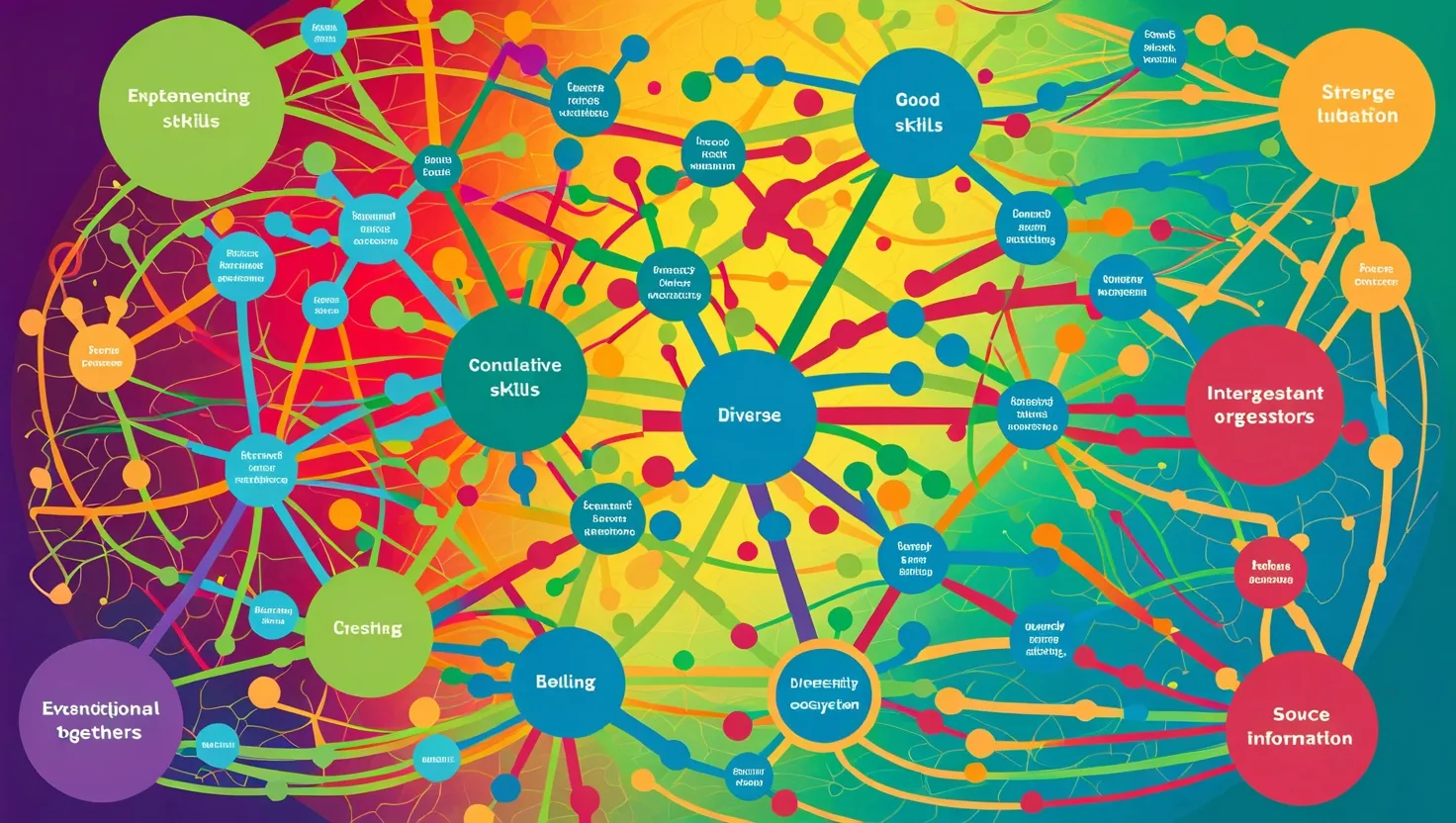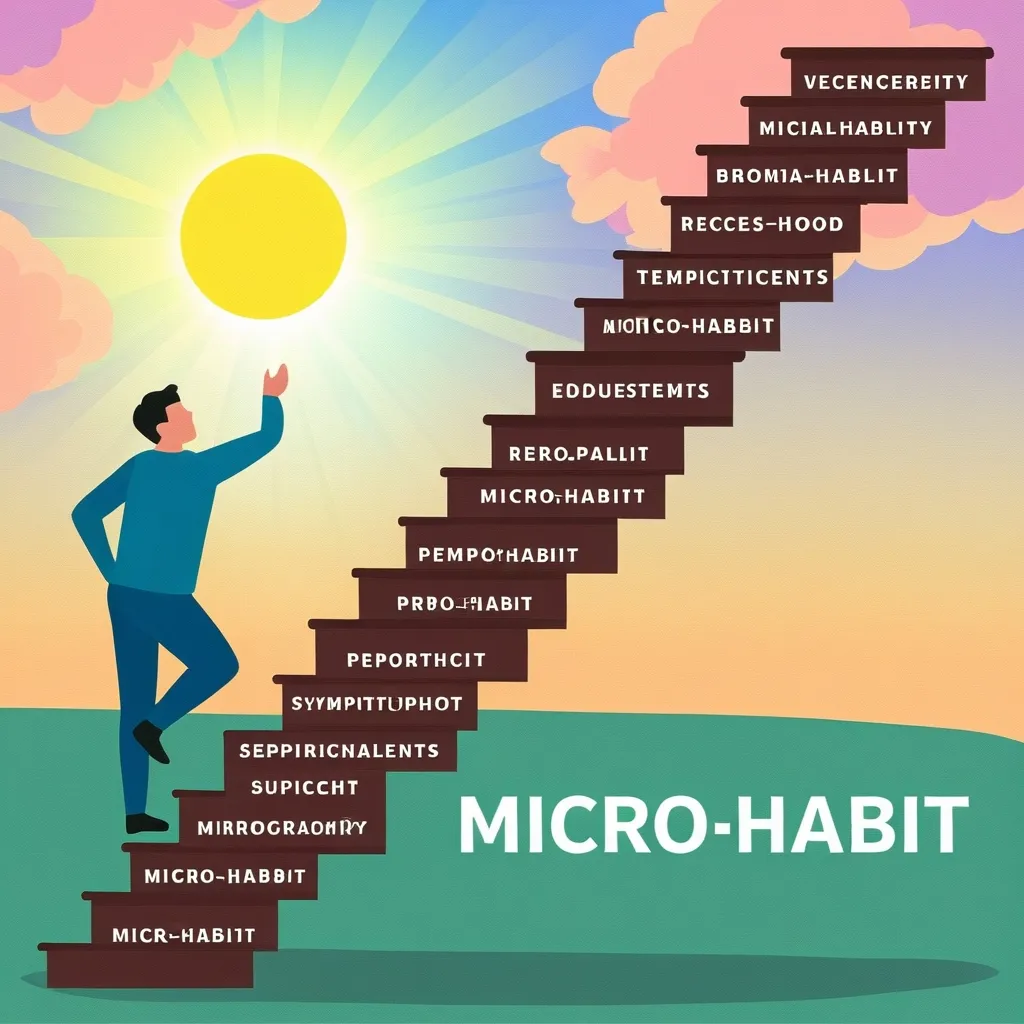In a world where the job market is increasingly dynamic and unpredictable, the traditional approach to skill development is no longer sufficient. We need to move beyond the idea of specializing in a single area or being a generalist with a broad but shallow skill set. Instead, we should aim to cultivate what can be termed as “symbiotic skill fusion” – a unique blend of diverse skills that work together in harmony, much like symbiotic organisms in nature.
Imagine combining data analysis with storytelling. At first glance, these skills might seem unrelated, but when fused together, they can create a powerful tool for communicating complex data insights in an engaging and accessible way. This is not just about adding two skills together; it’s about creating a new, hybrid talent that is greater than the sum of its parts.
To achieve this, we need to rethink how we approach career development. It’s no longer about checking boxes on a list of required skills but about creating a living ecosystem of interconnected talents. This means intentionally pairing skills that might seem disparate at first, such as financial modeling and virtual reality design, or molecular gastronomy and behavioral economics.
The concept of symbiotic skill fusion is rooted in the idea that the most innovative solutions often come from the intersection of different disciplines. By combining engineering with psychology, for example, you can design products that are not only technically sound but also user-friendly and psychologically appealing. This fusion of skills allows you to approach problems from multiple angles, leading to more comprehensive and innovative solutions.
One of the key benefits of this approach is its ability to make your career more resilient and adaptable. In an ever-changing job market, having a unique combination of skills makes you more valuable and less likely to be replaced by automation. It’s about creating a professional fingerprint that is hard to replicate, making you stand out in any industry.
To cultivate these hybrid talents, you need to adopt a mindset that is open to continuous learning and experimentation. This involves stepping out of your comfort zone and exploring areas that may not be directly related to your current job or expertise. For instance, if you’re a financial analyst, taking courses in creative writing or design can help you develop a more nuanced understanding of how to present financial data in a compelling way.
The workplace itself needs to be reorganized to support this kind of learning. Companies should foster an environment where employees are encouraged to explore different skills and collaborate across departments. This could involve hosting workshops, hackathons, or creative conferences that bring together people from various backgrounds to share ideas and learn from each other.
In this symbiotic learning environment, the boundaries between education, research, and practical work become blurred. Workplaces need to be designed to promote continuous learning, where employees at all levels are involved in systematic and organized efforts to develop new skills and competencies. This means recognizing and formalizing the learning that occurs through everyday work experiences, rather than just through formal training programs.
For example, in industries like industrial symbiosis, where companies collaborate to share resources and reduce waste, the need for diverse skills is paramount. Here, technical skills like engineering and regulatory knowledge must be combined with soft skills such as problem-solving, adaptability, and effective communication. This holistic approach ensures that the implementation of industrial symbiosis is not just efficient but also sustainable and innovative.
The development of these hybrid skills also requires a strong foundation in social skills. Interpersonal skills, such as multidisciplinary thinking, entrepreneurship, and conflict management, are crucial for facilitating collaboration and innovation. Being able to communicate effectively with stakeholders, manage conflicts, and remain flexible in the face of challenges are essential components of a symbiotic skill set.
Moreover, this approach to skill development is not just beneficial for individuals but also for companies and industries as a whole. By fostering a culture of symbiotic learning, businesses can stay agile and adapt to new market conditions more easily. This leads to sustained economic growth and the creation of new business models that protect traditional market positions while breaking into new ones.
In conclusion, cultivating symbiotic skill fusion is about transforming career development into a creative art form. It’s about recognizing that your skill set is not static but a dynamic ecosystem that evolves and adapts over time. By intentionally pairing diverse skills and fostering a culture of continuous learning and collaboration, you can create a unique professional fingerprint that stands out in any industry. This approach not only makes your career more resilient and adaptable but also leads to innovative solutions and niche expertise that are invaluable in today’s fast-changing world. So, don’t just collect skills – cultivate a living ecosystem of talents that work together in harmony, and watch your career thrive in ways you never thought possible.






